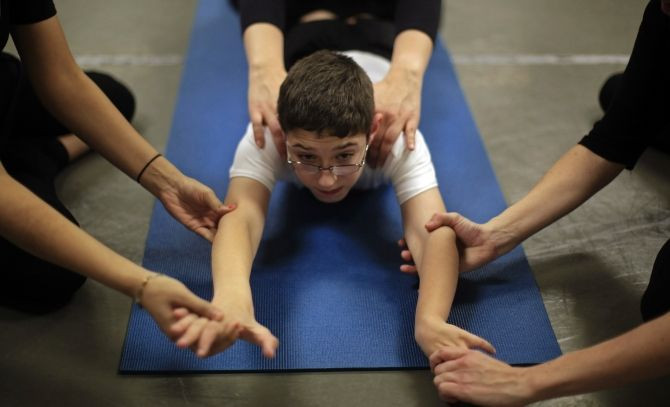Personality May Affect Posture, Back Pain

There may be a correlation between personality and posture and sometimes even the kind of back pain that a person experiences, says new study.
The researchers found that people who were introvert tended to suffer from back pain more than people with extrovert personality.
A small sample size of 100 people was chosen for the study. It was found that people with extroverted personalities tended to have ideal postures and people flat back and sway back posture was co-related with introvert personalities.
Ideal posture however does not mean being stiff or rigid. According to researchers ideal posture had flexible and relaxed muscles.
Personalities that are less flexible and resist adaptation tend to co-relate with rigid postures. According to researchers people with more adaptive personality have a more relaxed posture.
The body shapes itself according to the mind. A happy mind translates in a flexible posture that makes breathing easier while a negative mood results in poor posture resulting in back pain, the researchers say.
“Introverts appeared to have one of the largest reactions to psychosocial stress, demonstrating increases in normalized compression and lateral shear,” write authors of the present study, Slyvain Guimond and colleagues.
According to researchers, back pain occurs in almost half of the population aged between 35 and 55 years and that one in 25 people changes work due to problems that arise from back pain.
Previous researches have indicated that certain personality types like distressed personality (personality type-D) is a risk factor cardiac disease. Some experts have said that personality approach is needed to identify people who are at greater risk of developing cardiac disease. One research has even found that partners of patients with implantable cardiverter defibrillator (ICD) who have type-D personality can experience anxiety and depression.
The present study is published in the journal PLoS one.
Personality types, experts say, also govern the way we react to pain. A study published in The Clinical Journal of Pain says that neuroticism (a personality type associated with anxiety and stress) was linked with poor pain management.
According to National Institutes of Neurological Disorders and Stroke, aging, injury or trauma, lack or exercise or in some cases over-exercise, obesity, stress, medical conditions like osteoporosis, certain abnormalities, poor sleep, lower elasticity of scar tissue in the spine, are among many other reasons that can cause back pain.
Published by Medicaldaily.com



























